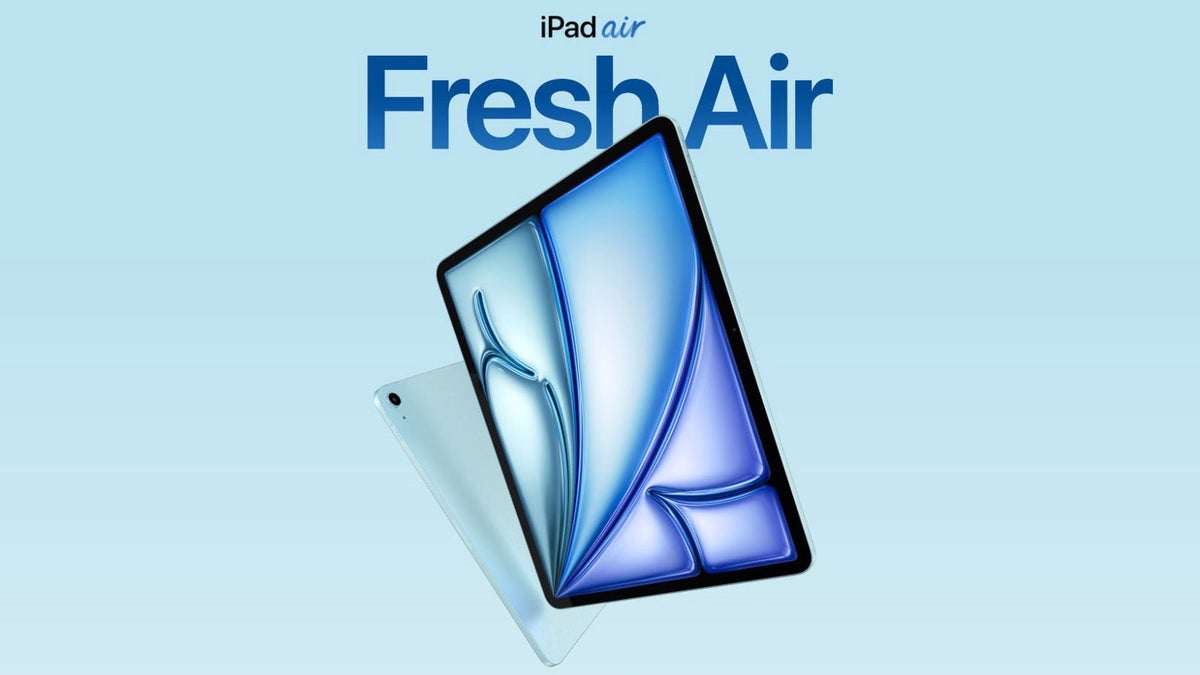Now, with the iPad Air line offering a big screen option, and with both the iPad Pro and iPad Air supporting Apple’s new and feature-rich Apple Pencil Pro, I’m bound to wonder if Apple could be butchering its own iPad Pro model with the 13-inch iPad Air. Let’s see if that could be the case.
iPad fans want a big screen, and before, just the iPad Pro offered it
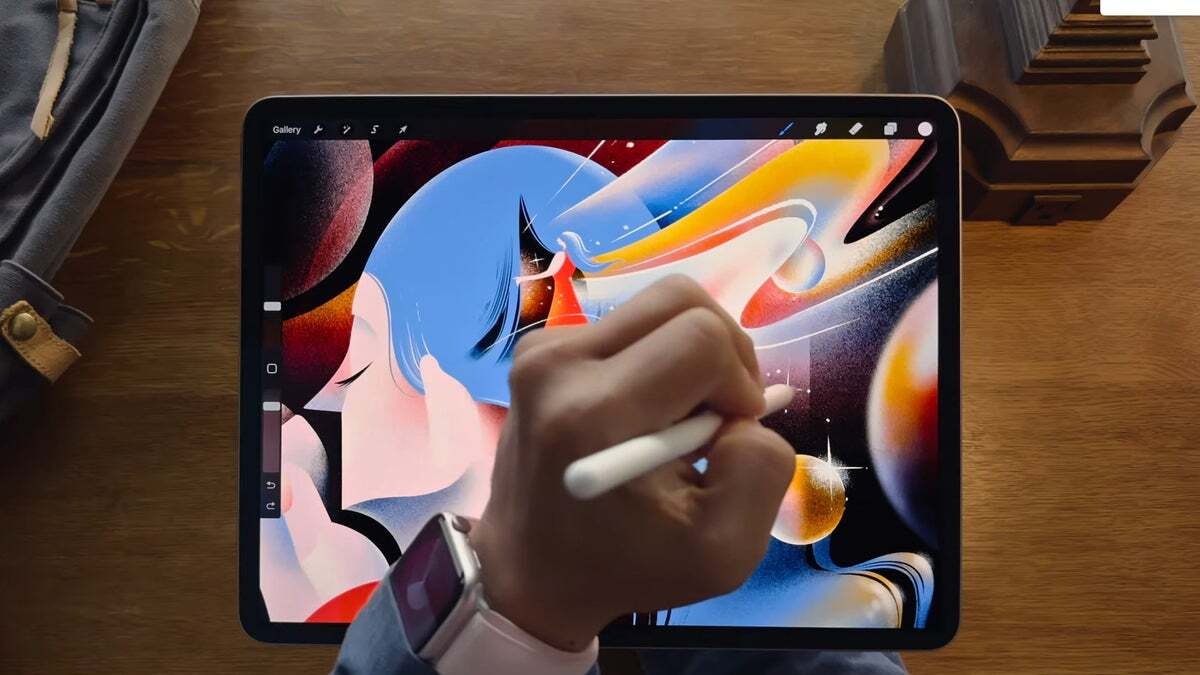
More screen real estate
During the event, Apple talked about its users wanting a big screen and picking the bigger iPad Pro. For this reason, Cupertino now has the iPad Air as a 13-inch variant as well. But is this actually a mistake? It seems I’m not the only one considering the possibility of a big but less costly iPad Air stealing some customers away from a big and very expensive iPad Pro. Analysts at TrendForce are also thinking in this direction and predicting fewer sales for the Pro than expected before.
The 13-inch iPad Pro starts at $1,299 while the 13-inch iPad Air is much more affordable starting at $799.
Before the big Air existed, if you wanted a big-screened iPad, you’d have to go for the expensive Pro. Now, you don’t have to do that anymore.
But then again, you might think that the iPad Pro’s design upgrade will make it more attractive because it’s so much more thin now… or so would Apple’s keynote make you believe. Yep, it is thinner, but actually, compared to the Air, it’s not that thinner.
Dimensions:
- 13-inch iPad Air: 11.04 x 8.46 x 0.24 inches
- 13-inch iPad Pro: 11.09 x 8.48 x 0.20 inches
It’s also not that much lighter:
- 13-inch iPad Air weight: 1.36 pounds
- 13-inch iPad Pro weight: 1.28 pounds
The iPad Pro is indeed thinner at 0.20 inch (5.1 cm) vs the Air’s 0.24 (6.1mm). Thinner by 1 mm isn’t exactly groundbreakingly thinner.
But then again, the iPad Pro’s got…
The M4 chip: raw power that could blow the Air out of the water
Yep, no bubbles in the water anymore… yet, jokes aside, we have the next-generation M4 chip powering the iPad Pro models, while the Air models are powered by the older M2 chip.
During the event, Apple made sure you don’t assume the Air is for you if you need the power.
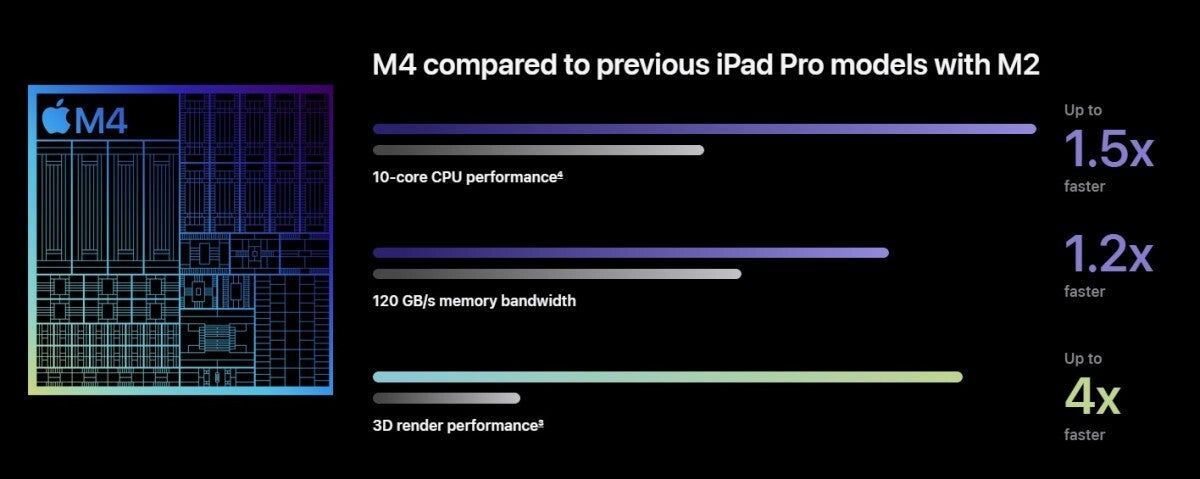

During Apple’s event, the following performance gains were highlighted for the M4
Also, judging by leaked Geekbench results (courtesy of @VadimYuryev on X, co-host and writer at popular YouTube channel @MaxTechOfficial), Apple was not lying when it emphasized the Pro’s speed.
- M4 chip: Single-core: 3,767 Multi-core: 14,677
- M3 chip: Single-core: 3,087 Multi-core: 11,702
- M2 chip*: Singe-core: 2,540 Multi-core: 9,634
*Previous gen 12.9-inch iPad Pro’s results
Judging by these numbers, the M4 in the iPad Pro could even be faster than the M3 Pro-powered MacBook Pro 14-inch. You can see in these graphs by YouTuber @MattTalkTech that the M3 Pro beats the iPad Pro in multi-core, but in single-core, it loses.
It’s clear that heavy users or those who want the fastest-working iPad right now will not be tempted by the M2 iPad Air. However, one could argue that only the heaviest or pro-ultra-extreme-performance-seeking people will go to the iPad Pro, just because despite it being slower than the M4, the M2 is still a very fast chipset.
Apple seems to be ready to blow its own MacBooks out of the water with the iPad Pro as well, but we’ll have to wait and see how many professionals choose to use an iPad instead of a Mac or a MacBook. I’m not one of them (preferring to go for an iMac just because I don’t travel when working), but hey, I don’t do heavy 3D rendering anyway…
Accessories: iPad Air M2 vs iPad Pro M4
Apple Pencil Pro supported on both iPad Air and Pro
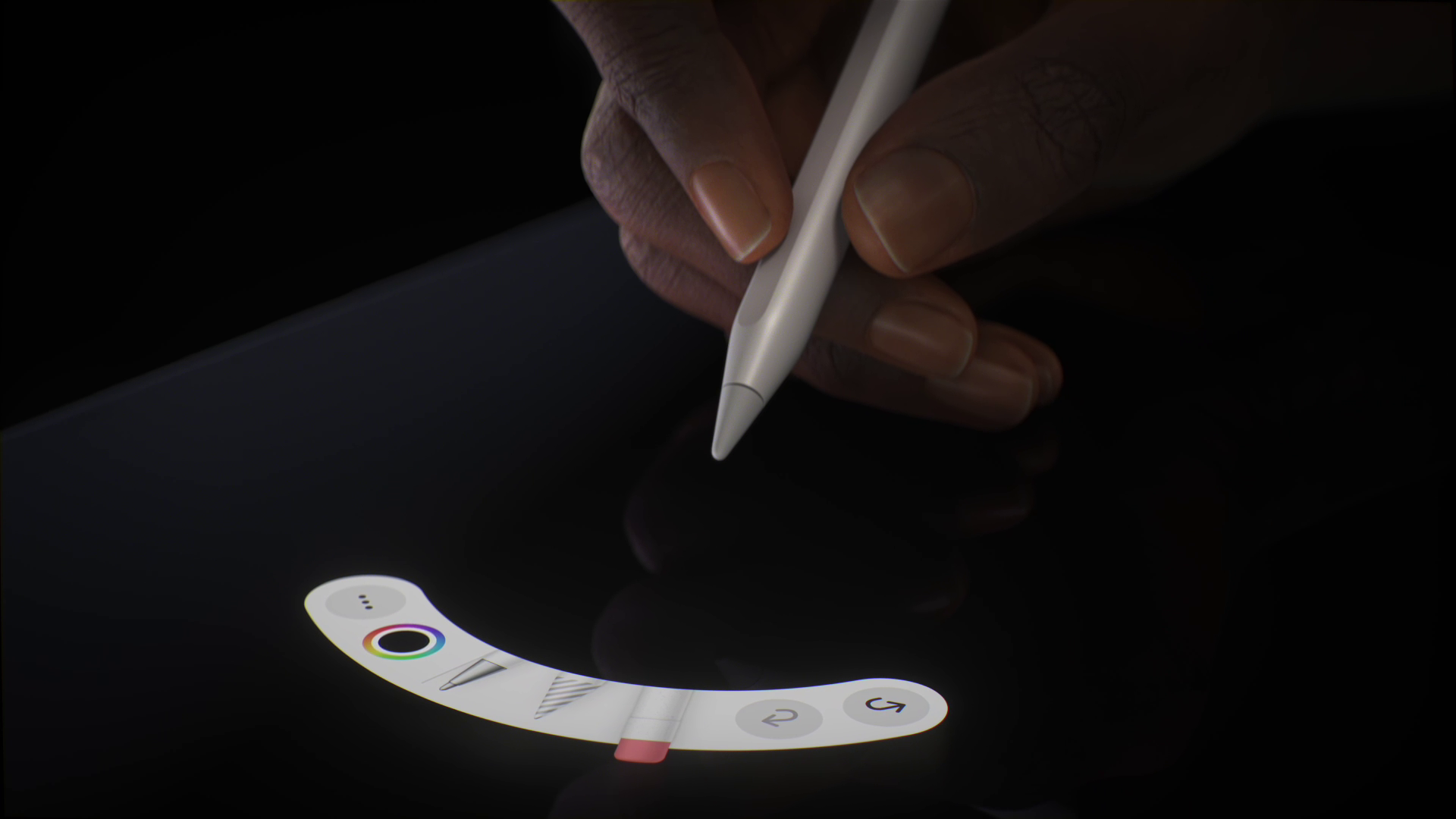

Apple Pencil Pro allows you to squeeze and get a palette for brushes
The performance gains of the Pro will surely attract customers away from the iPad Air. But probably not everyone who wants a big screen on an iPad really wants those speeds. And in real life, I’m sure the iPad Air is going to feel zippy anyway.
Then comes the second issue which may lead to the Air stealing some customers from the Pro. The Apple Pencil Pro. For me, learning about the Apple Pencil Pro’s features was the most exciting part of the event on May 7. Features like bringing up a palette to choose your brush from using Squeeze, Barell Roll for the precision of shaped pen or brush, Haptic feedback… all of those are exciting, especially for creatives.
And the new Air supports the Apple Pencil Pro. That’s, honestly, a very interesting decision from Apple that could indeed sway me (and most likely other artistically inclined people) toward the Air instead of the Pro. What stands out the most to differentiate the 13-inch Pro now remains sheer power… and also, the…
Magic Keyboard: the other thing the Pro has that the Air doesn’t
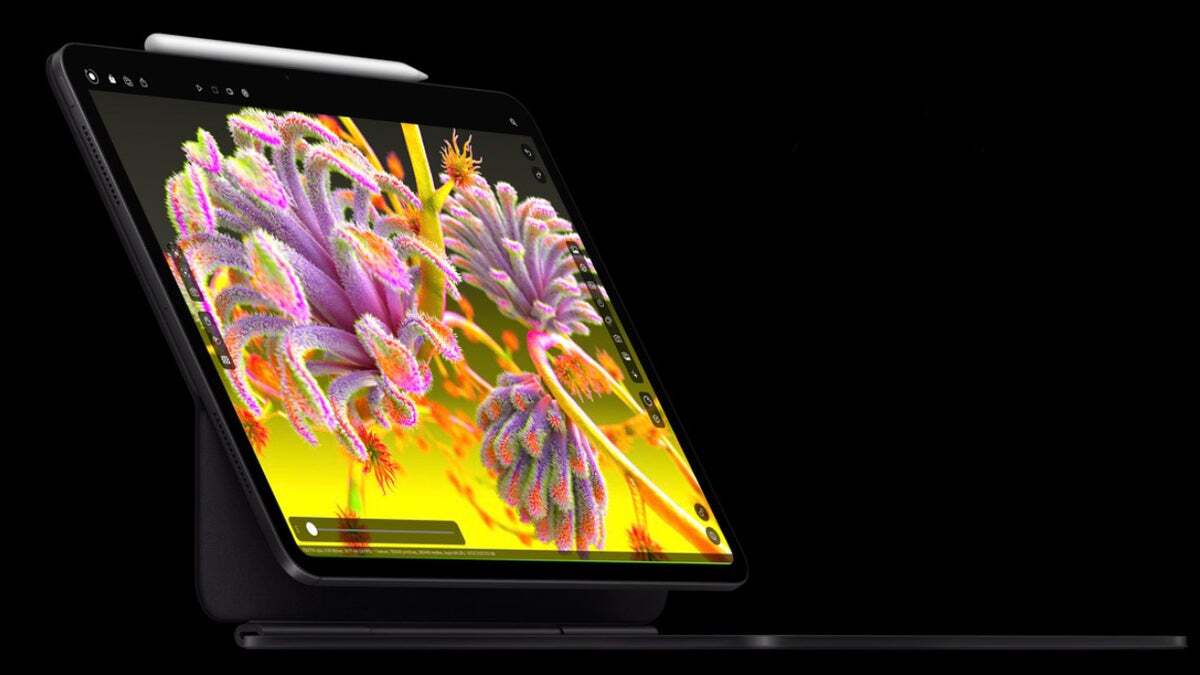

The Magic Keyboard is now more MacBook-like
I’m talking about the more MacBook-like new Magic Keyboard, that is not supported for the Air. You now get a dedicated row with function keys and a bigger trackpad. The overall design remains the same though.
Function keys on the new Magic Keyboard are now similar to a Mac. You get a button for increasing and lowering brightness, changing the volume, controlling media playback, locking the display, initiating a search, turning on Do Not Disturb, starting dictation, and more.
Also, the trackpad should now be more comfortable.
But is this enough to get you to buy an iPad Pro instead of an Air? For some people, most likely yes. But I feel like Apple should have added more fanciness to the keyboard instead of a row of buttons for features I barely use (I’ve only used the brightness ones and the occasional Do Not Disturb – maybe I should be doing more with them…) Maybe that’s a me thing. But we’ll see.
Conclusion: I still think at least a considerable amount of people will be drawn away from the Pro
Although we’ll most likely have the heavy users and the performance maniacs for the Pro, I consider many people who are more on the regular user side will go for the Air. Just because now if you need a larger screen, you have it for less money. And the Apple Pencil Pro.
Of course, we’ll see if I’m right when we actually get a look at the iPad Pro and Air sales figures, and it’s too early now to make a definite conclusion. And as always, I remain open to changing my mind when we learn more. But for now, I’m left here feeling that Apple could have actually undercut itself.
